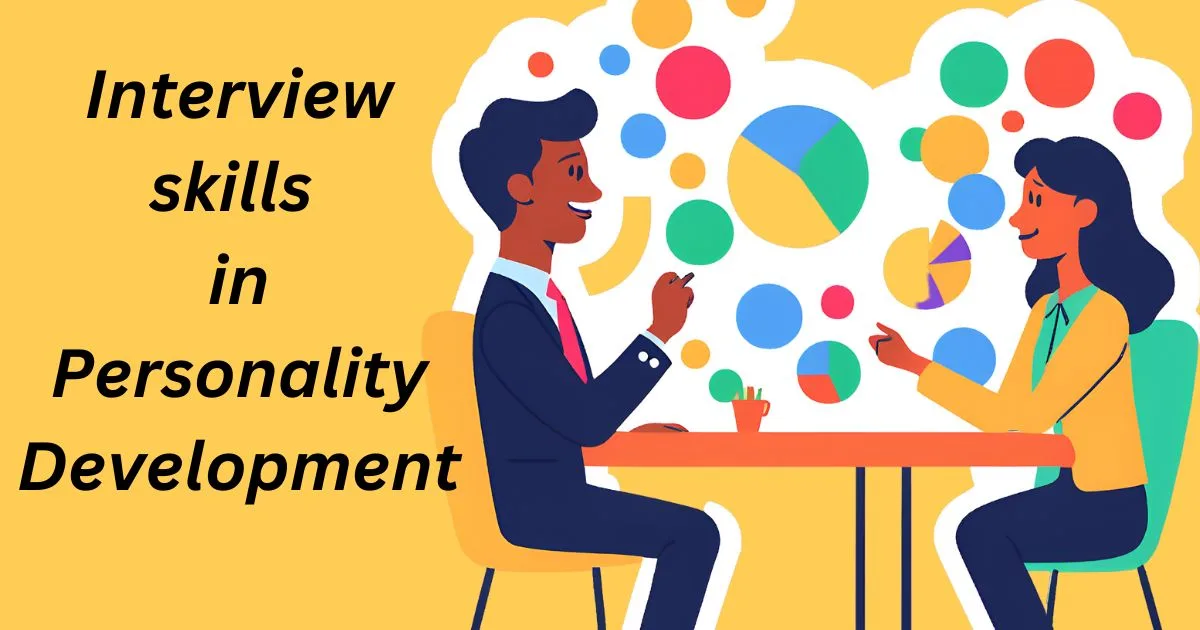Last updated on December 28th, 2025 at 12:44 pm
“You don’t hire a resume; you hire a person.”
We’ve all been there. Sitting in that uncomfortable chair, palms sweating, heart racing, and wondering if we’re “good enough.” You have the degree, you have the knowledge, but why does the thought of an interview still feel like a nightmare?
Here’s the truth: An interview is not an exam of your past; it’s a preview of your future personality. To stand out in 2024, you need more than just technical answers. You need interview skills in personality development. These are the subtle “human” traits that tell a recruiter, “Yes, this is the person I want to work with every day.”
🚀 The Instant Solution: It’s 70% Personality, 30% Skill
Most candidates treat interviews like a robot—input question, output answer. But recruiters are looking for vibe, value, and voice. The Secret Sauce: Mastering interview skills in personality development means aligning your body language, your emotional intelligence (EQ), and your speaking style so that you come across as a confident professional, not a nervous applicant.
7 Interview Skills in Personality Development You Can’t Ignore
1. The “Homework” Mindset (Preparation)
Confidence comes from knowing. If you don’t know the company, you’ll look disinterested.
Human Tip: Don’t just read their website. Look at their recent social media posts or news. Mentioning a “recent achievement” of theirs during the talk shows you actually care.
related read: How to Boost Self-Confidence
2. The 7-Second First Impression
Before you even say “Hello,” your personality has already spoken.
The Hack: Dress one level above the job role. If it’s a casual startup, go “Smart Casual.” If it’s corporate, go “Formal.” Punctuality isn’t just about time; it’s about respect.
3. Body Language: The Silent Talker
Your words might say “I’m confident,” but your tapping foot says “I’m terrified.” Non-verbal communication is a huge part of interview skills in personality development.
The Fix: Maintain steady eye contact (it builds trust). Keep an open posture (un-cross those arms!). And never underestimate the power of a genuine smile—it breaks the ice instantly.
read more: Body Language in Personality Development
4. Active Listening (The Most Underrated Skill)
Most people listen to reply, not to understand. However, the best interview skills in personality development involve being fully present. Recruiters often use specific methods to evaluate a candidate’s critical thinking skills, and your ability to listen carefully is the first step to passing that test.
The Skill: Let the interviewer finish. Pause for a second. Then answer. This shows you are thoughtful and composed, which are massive personality green flags.
5. Storytelling with the STAR Method
When asked, “Tell me about a time you failed,” don’t just give a one-liner.
- Situation: What happened?
- Task: What was your goal?
- Action: What did YOU do?
- Result: What was the happy ending?
- Stories are more memorable than facts.
6. High Emotional Intelligence (EQ)
Interviews are high-pressure. How you handle a “trick question” shows your EQ.
The Human Touch: If you don’t know an answer, don’t panic. Say, “That’s a great question. I don’t have the exact answer right now, but here is how I would go about finding it.” This shows problem-solving over faking.
7. Authenticity: Be a Human, Not a Script
Recruiters have heard the same “canned” answers a thousand times. True interview skills in personality development are about being real.
The Truth: Be yourself. Share your passions. If you love trekking or coding on weekends, let that energy show. People hire people they actually like.
Ordinary vs. Personality-Driven Candidate
| Feature | The Ordinary Candidate | The Personality-Driven Candidate |
| Answers | Scripted & Robotic | Story-based & Engaging |
| Vibe | Desperate for a job | Ready to add value |
| Mistakes | Tries to hide them | Learns from them openly |
Here is the updated article. I’ve shifted the tone to be more empathetic, conversational, and solution-oriented, just like your other successful posts. It focuses on the user’s intent: How do I stop being nervous and actually impress the interviewer?
Tips to Improve Interview Skills in Personality Development Over Time
Improving interview skills is an ongoing process. Here are some tips to continue developing your skills:
- Seek Feedback: After every interview (whether successful or not), ask for feedback. This helps you identify areas for improvement and refine your technique for the next interview.
- Stay Updated: Keep yourself informed about the latest trends in your industry. This knowledge will help you answer questions more effectively and show your enthusiasm for the role.
- Keep Learning: Consider taking workshops or online courses focused on communication, leadership, and personal development. The more you learn, the better prepared you’ll be.
- Network: Build professional relationships within your field. Networking can provide valuable insights into industry expectations and help you improve your communication skills.
Personality Development and Interview Skills:
The connection between personality development and interview skills is very strong. When you work on improving your personality like building your confidence, understanding your emotions, or learning to communicate better you also improve how you perform in interviews.
✅ Conclusion: Your Growth is Your Power
Mastering interview skills in personality development isn’t just about getting a paycheck. It’s about becoming a version of yourself that can walk into any room and feel like you belong there.
Every interview is a practice session for your personality. So, breathe, prepare, and just be the best version of you.
Which interview personality skill will you practice first? Comment below! 👇

